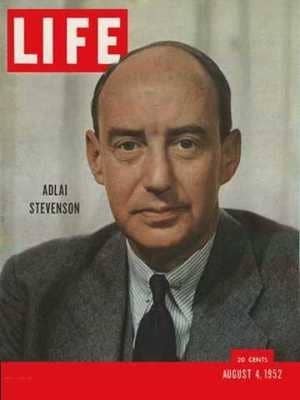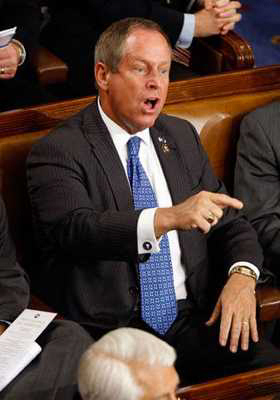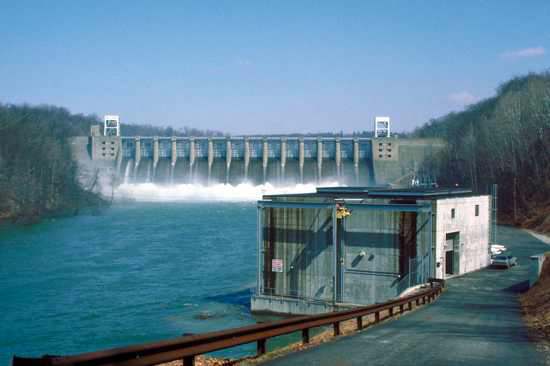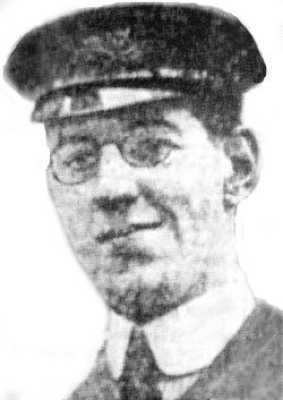In Greek mythology, Cassandra was the daughter of the King of Troy. She was so beautiful that the God Apollo granted her the gift of seeing the future, prophecy. When Cassandra spurned Apollo’s love, he put a curse on her – that no one would believe any of her predictions. Cassandra was thus an epic and tragic figure – granted a powerful ability, yet powerless to use it. Throughout history there have been many Cassandra-type figures, people who predicted the coming of terrible tragedies and disasters, but whose warnings were ignored. These people were not gods and were not using special powers of prophecy. They were people who had a deep understanding of the realities of a situation and tried to warn others. In each case, others failed to listen to their warnings, and tragedies that might have been averted were not. Here are ten examples of people who tried to warn others, but whose warnings went unheeded.
10
Adlai Stevenson

On October 24, 1963, less than a month before President John F Kennedy was scheduled to go to Dallas as part of a campaign swing through the critical electoral state of Texas, Kennedy’s UN Ambassador Adlai Stevenson went to Dallas to speak at Dallas Memorial Auditorium to mark U.N. Day. Many people in Dallas openly and violently hated the United Nations, Supreme Court Chief Justice Earl Warren, and the Kennedys. Their hatred was so intense that they persuaded Governor John Connally to declare the day before Stevenson’s visit “US Day” out of protest. When Stevenson arrived at the auditorium there were thousands of picketers outside, and many inside, to protest him and the UN (and the Kennedy Administration). As Stevenson tried to speak these protestors stamped their feet, shouted, booed, and rattled noisemakers to disrupt him. But Stevenson pressed on. One man screamed “Kennedy will get his reward in hell and Stevenson is going to die.” After the speech, police tried to escort Stevenson out of the auditorium but the angry crowd surrounded him. At one point Stevenson stepped out of the police protection to try to talk to a woman who was screaming at him. The woman clobbered Stevenson over the head with her picket sign. Stevenson then said “are these human beings or are these animals?”
Upon arriving back in Washington, Stevenson warned Arthur Schlesinger, Kennedy’s speechwriter, that Kennedy should not go to Texas, or at least, avoid Dallas. “There was something very ugly and frightening about the atmosphere,” Stephenson told Schlesinger. Schlesinger did not pass along the warning. Even if he had, it is doubtful Kennedy would have avoided Dallas, to do so would have seemed cowardly. Kennedy paid for this decision with his life.
9
Joe Wilson

In February 2002, Vice President Dick Cheney authorized the CIA to dispatch former ambassador Joseph C. Wilson to the small African nation of Niger to see if there was anything to the rumors that Saddam Hussein and Iraq were trying to purchase yellowcake uranium for use in nuclear weapons. Yellowcake is uranium concentrate powder (colored bright yellow) that is an intermediary step in processing raw uranium ore into weapons grade, highly enriched uranium used in nuclear weapons. As Niger has considerable natural uranium deposits, the possibility existed Iraq may have been trying to secretly buy the yellowcake to use in a possible nuclear weapons program. Wilson consulted with the Niger Prime Minister and came away with the conclusion that there was nothing to reports that Iraq had sales agreements with Niger to buy yellowcake uranium. He reported this to the CIA in March 2002.
In January 2003, in his State of the Union address, President George W. Bush stated “The British government has learned that Saddam Hussein recently sought significant quantities of uranium from Africa.” After the invasion of Iraq by the United States, in July 2003, Wilson wrote an op-ed article for the New York Times where he disclosed the mission to Niger. He stated that he had looked into the possibility of Iraq buying uranium and found nothing to it, and that he reported this to the CIA and White House. He implied that the President’s statement was misleading as justification for war with Iraq. CIA Director George Tenet would later say those words should never have been in the text of the Presidents State of the Union address, but still believed Iraq was trying to get its hands on nuclear material and was developing or even had developed an atomic weapon or other weapon of mass destruction (WMD).
After the US invasion in Iraq, a long and exhaustive search of the country was conducted to see if Iraq did in fact have nuclear material, a nuclear weapon, a nuclear weapons programs, or any of the weapons of mass destruction that the Bush administration warned the American people of. No WMD or any indication that Iraq had an active or even rudimentary nuclear program was ever found.
8
Dwight Eisenhower

A Military-industrial complex (MIC) is a kind of iron triangle composed of a nation’s armed forces, legislative/administrative government, and defense industry companies who work together to constantly funnel national resources into more and more military procurement. Though such complexes have existed since man began to use technology to wage war and develop better weapons, it was in the aftermath of World War II and the rise of the atomic age that the US version of the MIC began to frighten people who worried the MIC was beginning to over power typical democratic means of restraint, moderation, and control. No one was more concerned than President and former General Dwight Eisenhower. In his eight years as President, Eisenhower had watched the fearsome growth and power of the ever expanding and powerful United States MIC. As he left office on January 17, 1961 in his farewell speech to the Nation, he made the following warning:
“A vital element in keeping the peace is our military establishment. Our arms must be mighty, ready for instant action, so that no potential aggressor may be tempted to risk his own destruction…
“This conjunction of an immense military establishment and a large arms industry is new in the American experience. The total influence — economic, political, even spiritual — is felt in every city, every statehouse, every office of the federal government. We recognize the imperative need for this development. Yet we must not fail to comprehend its grave implications. Our toil, resources and livelihood are all involved; so is the very structure of our society. In the councils of government, we must guard against the acquisition of unwarranted influence, whether sought or unsought, by the military-industrial complex. The potential for the disastrous rise of misplaced power exists and will persist.
“We must never let the weight of this combination endanger our liberties or democratic processes. We should take nothing for granted. Only an alert and knowledgeable citizenry can compel the proper meshing of the huge industrial and military machinery of defense with our peaceful methods and goals so that security and liberty may prosper together.”
Eisenhower’s warning went unheeded. In the US today, the MIC is larger and more powerful than ever, making it difficult to near impossible for the US to stop making massive weapons programs and expending huge amounts of its national treasure on the military, even during times of relative peace (such as the 1990s after the fall of the Soviet Union). Today the US military budget is almost as large as that of all other nations combined.
7
John Parke

In the late 1800s a bunch of wealthy industrial barons led by Henry Clay Fricke decided they wanted their own private retreat from the soot, dirt, and heat of the city – a place out in the mountains of western Pennsylvania. They purchased a dam and lake that had been built in the early 1800s as a reservoir on the Conemaugh River near Johnstown Pennsylvania and created the South Fork Fishing and Hunting Club. They called their lake “Lake Conemaugh” and though the dam that created it had originally been well-built, over the years, due to poor maintenance and alterations, it had become more and more unstable. By the time the industrialists bought it, it was already leaking and in a state of disrepair. Rather than use some of their incredible wealth to strengthen and fix the dam, they mostly made patches using clay and straw whenever it sprung a leak, which it did quite often.
On May 31, 1889, a storm struck the Johnstown-South Fork area creating one of the worst downpours ever recorded in Pennsylvania history. Six to ten inches of rain fell in a 24-hour span and the local streams burst their banks, pouring water into the already unstable Lake Conemaugh.
That morning, Elias Unger, the president of the South Fork Fishing and Hunting Club awoke to see the water level of the lake was nearly cresting the dam. Unger quickly assembled a crew to try to clear the blocked spillways but they could not clear the debris. His men then made a frantic effort to dig another spill way to take some of the pressure off the dam and divert the water. This too failed.
Fearing the dam would collapse at any moment, Unger ordered John Parke, an engineer for the South Fork Club, to ride on horseback to the nearby town of South Fork to the telegraph office to send warnings to South Fork and Johnstown. Parke made it and telegraphed not one but two warnings, both of which were never passed along to South Fork and Johnstown officials who could have taken action and evacuated the towns. Over the years there had been so many false alarms of the dam breaking (because of the frequent leaks and repairs) that no one believed Parke when he told them the dam would not hold.
At around 3:10pm, the dam finally gave way. Its contents, an estimated 20 million tons of Lake Conemaugh water, rushed down the Little Conemaugh River. The water reached the little town of South Fork first. Fortunately most of the inhabitants heard the roar of the water coming and were able to scamper up the side of the mountain to high ground and only four people were killed. The people of Johnstown were not as fortunate. The wave of water, moving at 40 miles per hour and reaching a height of 60 feet, carrying houses, telephone poles, rocks, trees, railroad cars, and everything else in its path, slammed into the town. An estimated 2,209 people were killed making it the worst disaster in the history of the US at that time.
6
Cyril Evans

In April 1912 Cyril Evans was working as the telegraph operator on board the SS Californian on a voyage across the Atlantic. On the night of April 14, 1912, the Captain of the Californian, Stanley Lord, brought the ship to a halt as it had entered a wide ice field with many large icebergs. Lord came into the wireless operators room and ordered Evans to warn other ships in the area of the ice. Evans proceeded to do just that, sending out wireless warnings to other ships in the area that they were approaching ice.
In the wireless room aboard the Titanic, operators Jack Philips and Harold Bride were trying to get through a backlog of private messages they were to send from the ship to the United States, the destination of the Titanic on her maiden voyage. Philips received Evans’ ice warning message, but because the Californian was so close to the Titanic and Evans had his set turned to full power, he almost blew the headset off Philips head. An angry Philips told him to get off and Philips never passed along the ice warning to the bridge or the ship’s Captain. Evans felt he had done what he was ordered to do, switched off his radio set, and went to bed. A short time later the Titanic, heading at full steam west toward America, came upon the ice Evans had tried to warn them about, struck an iceberg and sank with the loss of over 1500 people.

